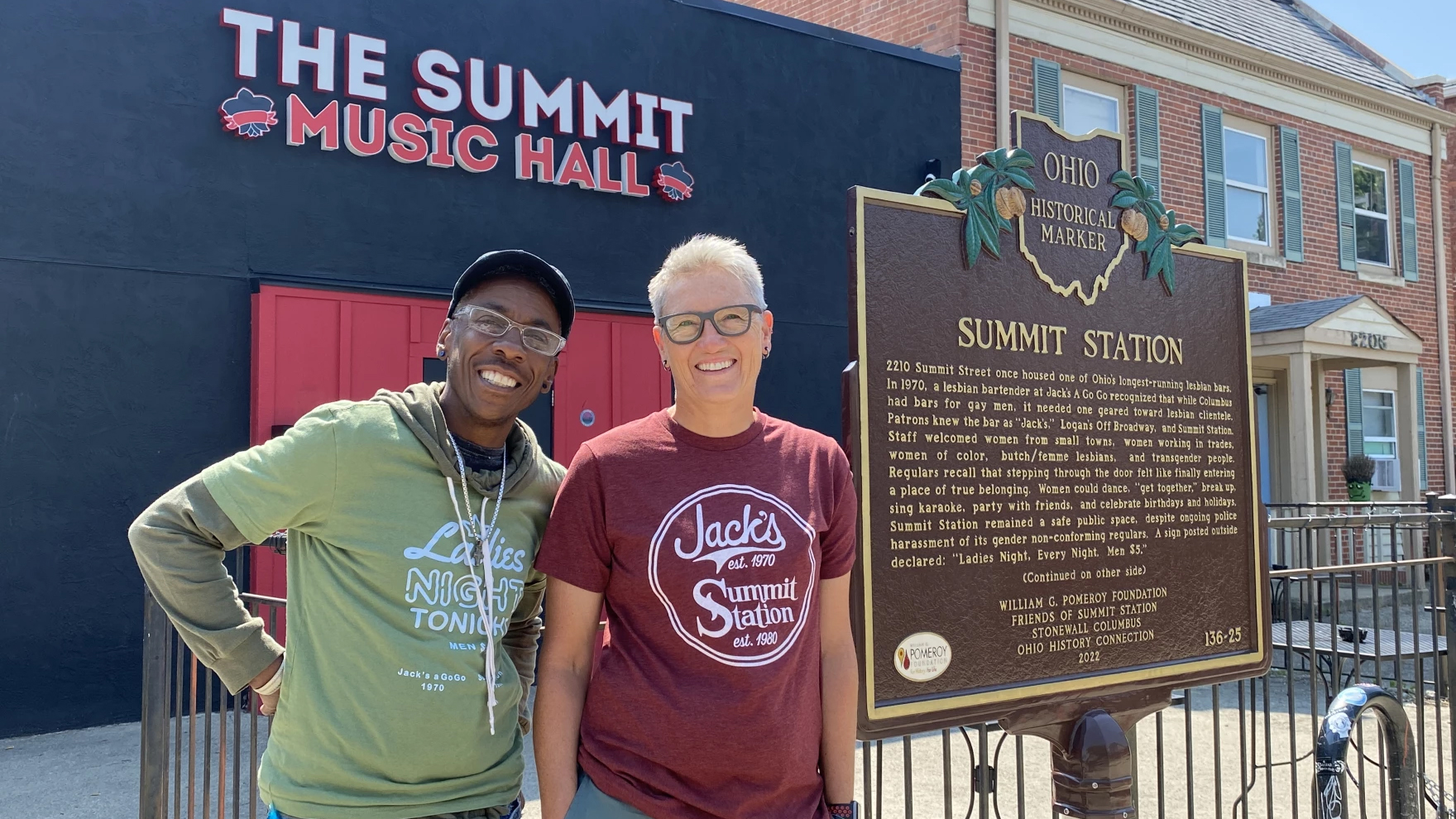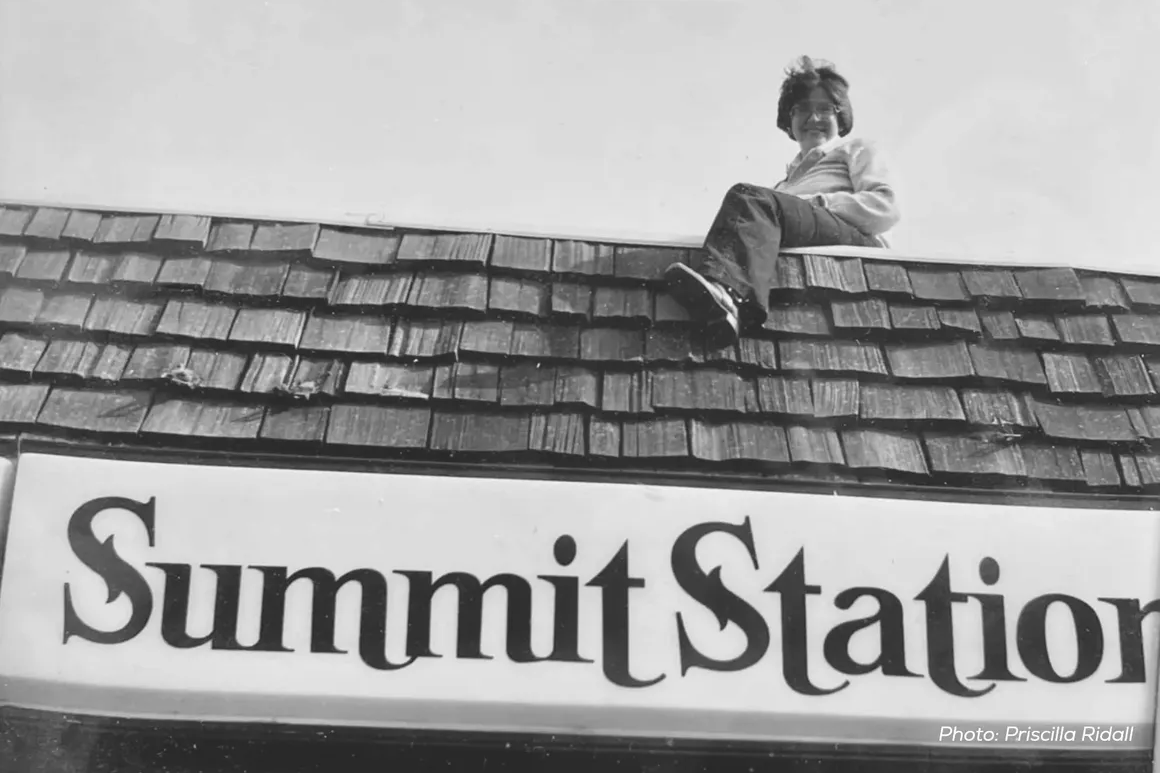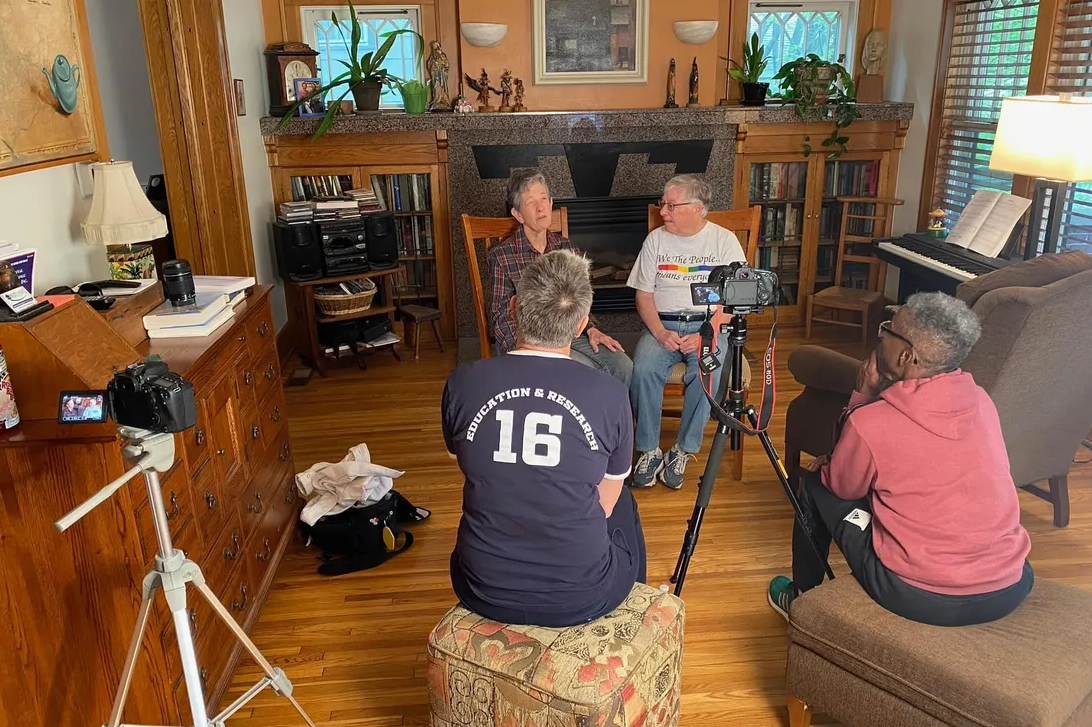Buckeyes in Action: 'Where they plotted and changed the world'
Julia Applegate ’20 MPH leads effort to preserve rich history of Columbus lesbian bar
By Misti Crane

Editor’s note:
Every day, dedicated faculty, students, staff and alumni of the College of Public Health are impacting the well-being of communities locally, nationally and around the world. Our Buckeyes are passionate leaders and advocates committed to ensuring all people have the opportunity to thrive. “Buckeyes in Action” showcases the multitude of ways our community is driving public health forward in tangible, immediate ways.
At the opening of the new documentary “Free Beer Tomorrow,” a series of older women reflect on the significance of a Columbus lesbian bar that was so much more than a place to grab a drink after work.
“You could touch each other. You could wear what you wanted. You could kiss,” said one long-time patron.
Another compares walking into the bar to Dorothy waking up in her color-saturated dreamland in “The Wizard of Oz.”
The Summit Street bar, just west of Ohio State’s campus is now the Summit Music Hall, where a mostly young crowd gathers for everything from karaoke to jazz to jam bands. But a brown historical marker out front ensures Columbus won’t forget the sanctuary that occupied the space for from the 1970s through 2008 — a place where lesbians could laugh together, cry together, talk politics, drive meaningful change in their community and sometimes even fall in love.
“My bar was hopefully a safe place for thousands of women who went through those doors over 40 years,” said Petey Brown, the longtime proprietor of Summit Station, previously known as Jack’s A Go-Go, in the documentary Julia Applegate began imagining in 2022. The title comes from a green neon sign that hung behind the bar for decades.

Applegate, a 2020 alum of the College of Public Health’s MPH-Program for Experienced Professionals and senior lecturer in the Division of Health Behavior and Health Promotion, has no background in film or journalism. But as an increasing number of lesbian bars throughout the country close shop (only 38 remain, according to the Lesbian Bar Project) she felt compelled to mark the historical significance and tell the story of a place she and so many others hold dear.
Applegate arrived in Columbus in the early 90s, expecting to crash with a friend for six months tops before moving on. Then she started hanging out at Summit Station.
“I was already out as a lesbian, so I didn’t have the exact experience of many of the women in the movie, but it was just the most relaxed hangout place there was. You could go there with a friend. You could go there and make friends. It was just a super comfortable, welcoming place that gave me a space to find people like me and learn my culture,” she said recently outside of Dulles Hall on campus, which houses Applegate’s primary post at Ohio State, the Department of Women's, Gender and Sexuality Studies.
Beyond camaraderie and general good times, the bar served as a magnet for smart people committed to improving opportunities for women, advocating for safety and health and sparking political action, Applegate said.
And those plans to leave Columbus in a hurry? “Suddenly every night of the week I’ve got something to do, and I’ve got friends all over the place. I was planted deep, fast,” said Applegate, an Ohio University graduate who went on to earn her MA in women’s studies in 1997.
Applegate’s career in public health started in HIV community planning, prevention and advocacy. She then formed the LGBTQ+ Health Initiative at Columbus Public Health and directed the Equitas Health Institute.
During the pandemic, she found herself focused on the dearth of widespread knowledge about Columbus LGBTQ+ history and what she could do about it.
Step one was to band together with close friend and longtime Summit Station patron LuSter Singleton to work on commemorating the bar’s cultural significance. With help from the Ohio History Connection, a historical marker was placed in front of the bar in 2023.
Included in the message on the sign: “Summit Station remained a safe public space, despite ongoing police harassment of its gender non-conforming regulars. A sign posted outside declared: ‘Ladies Night. Every Night. Men $5.’”

Next, Applegate and Singleton set about talking to more than 50 bar patrons from over the years — nearly all of them 65 or older. The oldest was 82.
Singleton, who is 64 and now uses he/they pronouns, first began to identify as “a lesbian, politically” after being introduced to the community at Jack’s/Summit Station more than four decades ago. Singleton and Applegate fell into the same group of friends in the 1990s and bonded over their shared experiences growing up in rural Ohio — he in Zanesville, she in Portsmouth.
“We just started interviewing people. We’re both Appalachian kids and we’re natural storytellers. I figured, we can make a film, we’ll just figure it out,” Applegate said.
Many of the older patrons were familiar to her, she said, but she was too shy to talk to them back in the day, “even though I was in awe of them.”
“There was so much more going on in this bar than drinking and getting to know each other,” Singleton said, adding that what drew him in so deeply was the rich foundation in feminist politics and activism that emerged from the patrons at the bar, who ranged from blue collar workers to graduate students at Ohio State to lawyers from downtown firms.
“These women were fearless. They scared the crap out of me at first, but they were fearless. And it was always multi-ethnic, intergenerational, all the politics, all the religions and we gave each other the room to operate,” Singleton said.

Among the efforts that arose from that fearlessness: the Women’s Action Collective, Women Against Rape and Women’s Outreach for Women, a support group for those who were pursuing sobriety. The idea for CHOICES, which supports survivors of domestic violence, sprung from the patrons at Summit Station.
“So much of our culture that’s progressive and moved the needle is due to lesbian activism, and the places they gathered were bars,” Applegate said. “That’s where they plotted and changed the world.”
To both Applegate and Singleton, the lessons in “Free Beer Tomorrow” are tremendously useful today. They illustrate resilience, determination and the power of community.
“The one thing I hope people really get out of this film is that it is proven that we can not only survive, but thrive,” Singleton said.
More information and updates on opportunities to watch “Free Beer Tomorrow” can be found here.